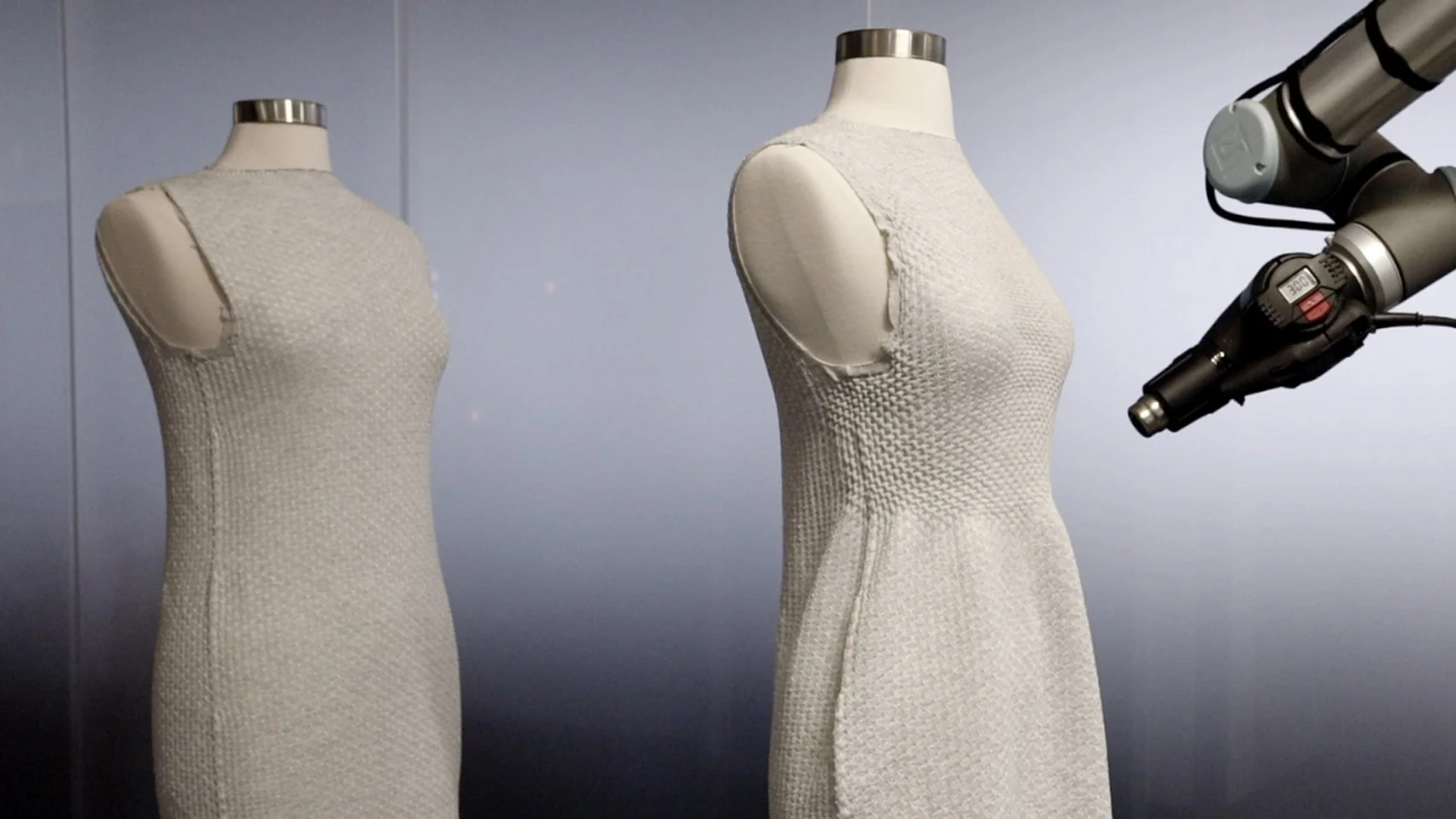MIT researchers and Ministry of Supply have created a “4D-knit dress” using heat-activated yarn. Unlike traditional methods, which involve cutting and sewing flat sheets, this dress is knitted as a three-dimensional shape. The fourth dimension, time, comes into play as the dress’s form can be changed later by applying heat with a programmed robot arm.
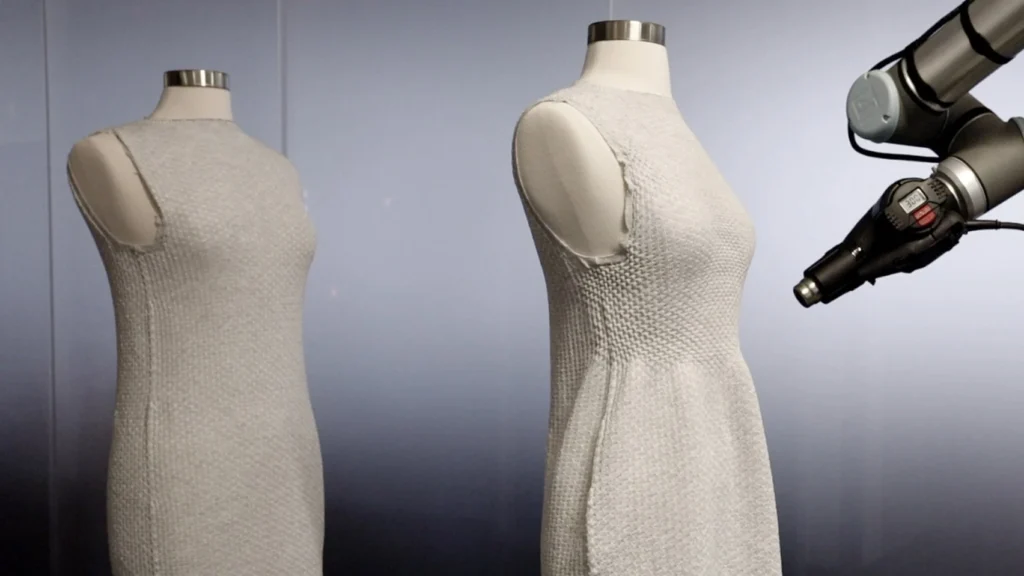
The 4D-Knit Dress can change its shape using heat, ranging from a fitted sheath to a full bubble dress or customized adjustments like tucks for a perfect fit. This process can even create details such as ruffles or ruching.
Researchers from MIT’s Self-Assembly Lab, creators of the dress, see it as a sustainable alternative to traditional clothing production, reducing waste from manufacturing and excess stock. According to Skylar Tibbits, the lab’s founder, producing clothing in numerous sizes and styles is costly and unsustainable for the fashion industry.
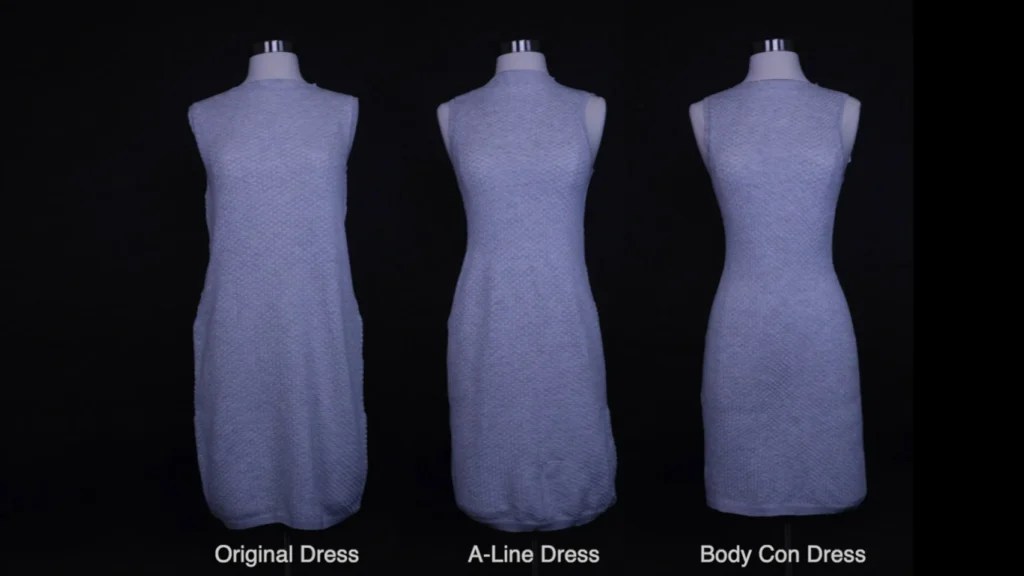
The dress’s style and fit can be changed to suit individual preferences. Skylar Tibbits, founder of MIT’s Self-Assembly Lab, highlights that having one dress that can be customized for both fit and style is more sustainable and adaptable. The heat-activated yarn, developed by the Self-Assembly Lab, is a blend of nylon, viscose, and polyester, essential for the dress’s transformation. The knit structure of the fabric also plays a crucial role in guiding its transformation.
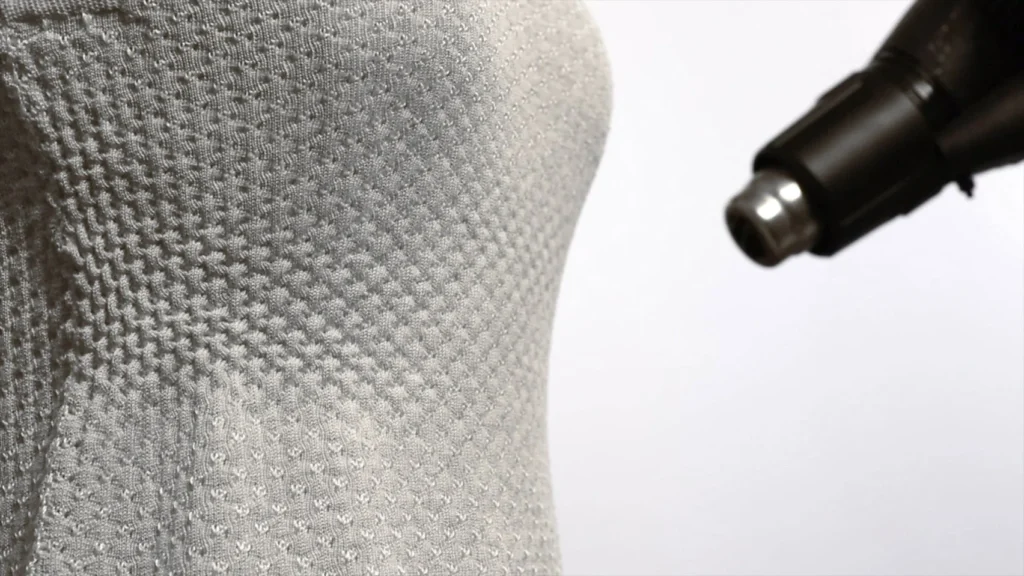
The knit’s structure directs how the fabric changes shape. Tibbits explains that the material shrinks with temperature, while the knit guides this change and enables different behaviors in various parts of the garment. They’ve spent years refining control over the textile’s transformation, adjusting the amount of change at different temperature ranges.
To trigger these alterations, they employ a six-axis robot, similar to those used in factories for welding or assembly.
At Ministry of Supply’s Boston store, a robot arm, following a programmed path, moved around a mannequin similar to a tailor adjusting clothes with pins and tucks. Ministry of Supply and the Self-Assembly Lab have partnered for almost ten years, with the lab concentrating on technical aspects and the fashion brand leading in design and store operations. Together, they developed the fiber, yarn, knitting, and activation techniques. During the pandemic, they utilized this technology to quickly create personalized face masks.
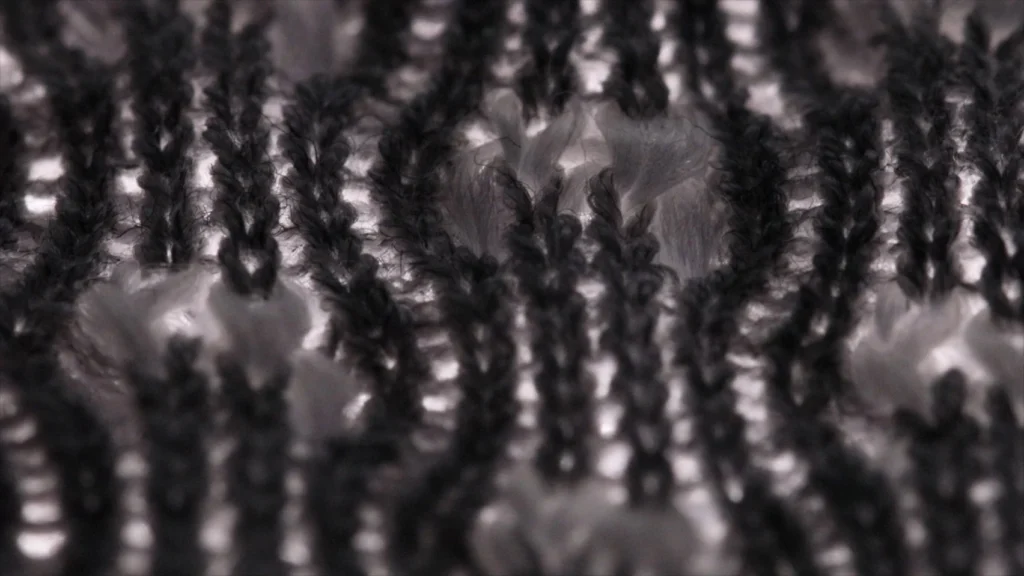
The dress is crafted using heat-activated nylon yarn. Initially, a limited batch of prototypes of the 4D-Knit Dress was showcased at the Ministry of Supply store.
The Self-Assembly Lab assures that the dress retains its softness, stretchiness, and durability even after heating, and the production method is both efficient and expandable. Moreover, the dress is machine washable in cold water.
Ministry of Supply is now expanding the production of the 4D-Knit Dress with its industrial knitting collaborators to make it available in more stores.
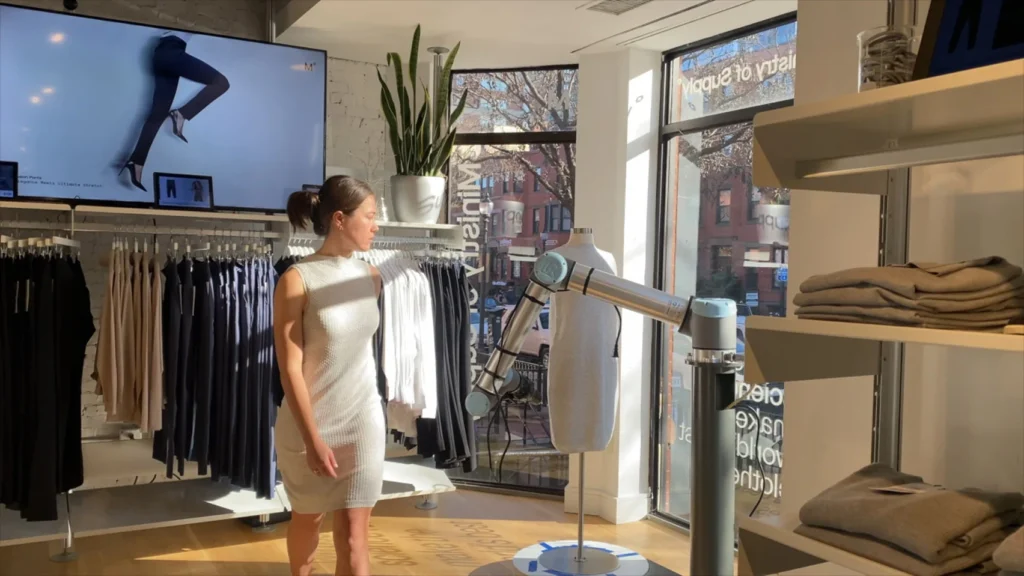
The dress was showcased at Ministry of Supply’s main store in Boston. Ministry of Supply’s co-founder and president, Gihan Amarasiriwardena, noted the importance of adapting inventory late in the process due to recent supply chain challenges. This approach allows for adjustments in response to demand, changes in size preferences, and seasonal variations, which is facilitated by 4D Knitting technology.
Ministry of Supply was established by three MIT students in 2012 to integrate new technologies into fashion. Among its previous innovations is a self-heating smart jacket.
The Self-Assembly Lab, known for innovations like Rapid Liquid Printing and Active Auxetic material, has contributed to the development of the 4D-Knit Dress.
